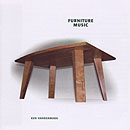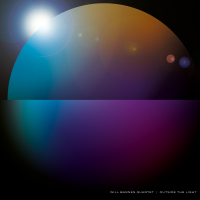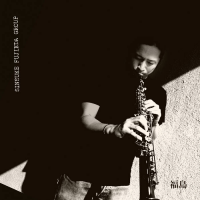Home » Jazz Articles » Album Review » Ken Vandermark: Furniture Music
Ken Vandermark: Furniture Music
As has been his penchant for years, each composition carries with it a dedicatee and the programmatic whole presents a typically diverse bunch. In the past these efforts of musical homage haven’t always matched up smoothly with their intended honorees, but in this collection the faulty fits are pleasantly few. As Vandermark explains in his accompanying notes, each artist under scrutiny shares the common bond of repetition as a feature integral to his creative method.
“Resistance” mirrors Evan Parker’s signature style of slippery overtones and multiphonics, but on clarinet; while the gruff gutteralisms of “Horizontal Weight” evoke the heavy bulk of Brötzmann’s barbaric yawp on baritone sax, Vandermark’s most recent of reed acquisitions. Actually, the entire program draws on the German’s various solo efforts for the FMP as a source of indirect inspiration. Echoing the diversity of those records, Vandermark makes use of his entire reed palette and uses each piece as a platform to explore a specific idea or approach. On all of the pieces he wisely avoids the sort of academic grandstanding that solo improv affairs can often be guilty of, and none come across as simply showcases for naked technique.
Later tracks like “Immediate Action” and “Would a Proud Man Rather Break Than Bend” sustain the level of focus. On the former, Vandermark channels the spirits of past Tristanoites, affecting a feathery flutter on his baritone that sounds more in line with a tenor register and jockeying through a oblique melodic improvisation that would make Lennie smile. The latter piece poignantly tunes into the resonant frequency of Mississippi Fred McDowell through a weary cyclic blues line that has much in common with another Fred, one who shares Vandermark’s Chicago stomping grounds.
Minimalism factors into “So This Is” and “Panels,” two situations where tones are parsed into porous patterns and the silence between sounds is nearly as important to the overall structures as the sounds themselves. “Melodica,” scripted in honor of Joe McPhee, is an exercise in almost undiluted melody on liquid-voiced clarinet, while “Leaves,” for Italian film director Michelangelo Antonioni, uses rasp-flecked breath sounds and reed pops as its basis of explication.
A smattering of live renditions recorded in Vandermark’s living room bolster the disc’s running time. Each one is subtly different from its studio predecessor and the variations make for intriguing points of comparison. Vandermark is candidly up front about the amount of individual frustration and crisis that went into the formation of his own solo nomenclature. On the sturdy basis of this initial lexicon it appears all the sweat, tears and fears paid off.
Visit Okka Disk on the web.
Track Listing
Resistance/ Horizontal Weight/ So Is This/ Lines/ Immediate Action/ Panels/ Color Fields To Darkness/ Would a Proud Man Rather Break Than Bend/ Beck and Fall/ Melodica/ Indeterminate Action/ Leaves/ br
Personnel
Ken Vandermark
saxophoneVandermark- clarinet, bass clarinet, baritone & tenor saxophones. Recorded: August 12, 15 & 19, 2002, Chicago.
Album information
Title: Furniture Music | Year Released: 2004 | Record Label: Okka Disk
Tags
PREVIOUS / NEXT
Support All About Jazz
 All About Jazz has been a pillar of jazz since 1995, championing it as an art form and, more importantly, supporting the musicians who make it. Our enduring commitment has made "AAJ" one of the most culturally important websites of its kind, read by hundreds of thousands of fans, musicians and industry figures every month.
All About Jazz has been a pillar of jazz since 1995, championing it as an art form and, more importantly, supporting the musicians who make it. Our enduring commitment has made "AAJ" one of the most culturally important websites of its kind, read by hundreds of thousands of fans, musicians and industry figures every month.


















